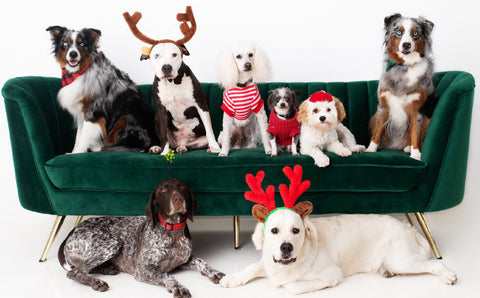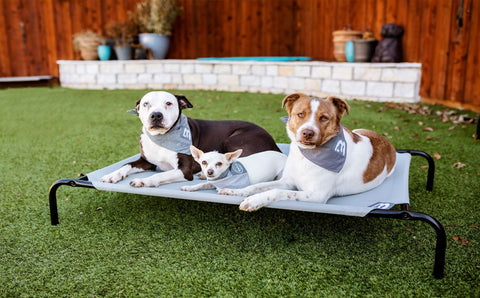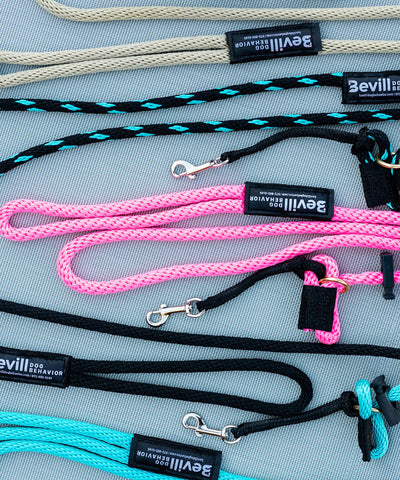As the temperature drops and winter approaches, it's important to remember that your dog may need some extra care and attention to stay comfortable and safe during the cold months. Here are some tips to help you prepare your dog for a cold winter:
1. Assess Your Dog's Breed and Size:
Different dogs have different tolerances for cold weather. Larger and furrier breeds may handle the cold better than smaller or short-haired dogs. Understanding your dog's breed and individual needs will help you determine how much preparation is necessary.
2. Dress for Success:
Just like humans, dogs can benefit from wearing winter clothing. Invest in a cozy and well-fitting dog sweater or coat to keep your pup warm during walks. Don't forget to protect their paws with booties to prevent frostbite and irritation from salted sidewalks.
3. Maintain a Regular Exercise Routine:
Cold weather can make both humans and dogs less enthusiastic about going outside. However, it's important to continue providing your dog with regular exercise to prevent weight gain and maintain their mental and physical health. Shorter, more frequent walks can be a good compromise.
4. Adjust Their Diet:
Dogs may need more calories in the winter to maintain their body temperature. Consult your veterinarian to determine if your dog's diet needs adjustments during the colder months. Providing warm meals can also be comforting for your pet.
5. Create a Cozy Indoor Space:
Ensure that your dog has a warm and comfortable indoor area to retreat to when it's too cold outside. Provide soft bedding, a cozy blanket, and perhaps a heated pet pad to keep them warm and cozy.
6. Beware of Frostbite and Hypothermia:
Learn the signs of frostbite and hypothermia in dogs, such as shivering, pale skin, or lethargy. If you suspect your dog is suffering from either, seek immediate veterinary attention.
7. Protect Against Winter Chemicals:
Winter often means salt and de-icing chemicals on sidewalks and roads. These can be harmful to your dog's paws if ingested or if they lick them. After walks, rinse your dog's paws and belly to remove any potential toxins.
8. Keep Them Leashed:
In snowy conditions, it can be challenging for dogs to find their way back if they wander off. Ensure your dog is leashed or kept within a secure fenced area to prevent them from getting lost.
9. Grooming Matters:
Regular grooming is essential during winter. Keeping your dog's coat clean and well-brushed will help maintain its insulating properties and prevent matting.
10. Watch for Behavioral Changes:
As a dog behaviorist, you're attuned to your dog's behavior. Keep an eye out for any unusual changes in their behavior or signs of distress that may be related to the cold weather.
By following these tips and staying attuned to your dog's needs, you can ensure that your furry friend stays happy and healthy throughout the winter months. Remember, a little extra care goes a long way in keeping your dog safe and comfortable during the cold season.








